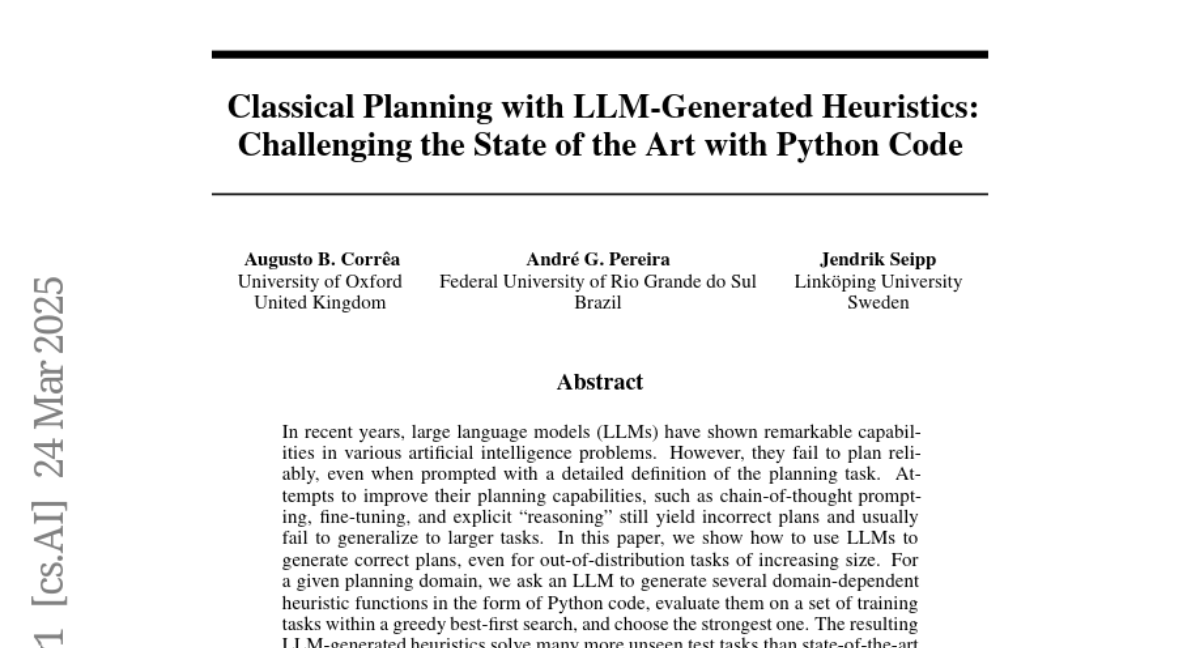Classical Planning with LLM-Generated Heuristics: Challenging the State of the Art with Python Code
Augusto B. Corrêa, André G. Pereira, Jendrik Seipp
2025-04-01

Summary
This paper explores how to use AI language models to create plans for solving problems, even when those problems are complex and unfamiliar.
What's the problem?
AI language models often struggle to create reliable plans, even when given detailed instructions.
What's the solution?
The researchers used AI to generate different strategies (heuristics) in the form of computer code, tested them, and chose the best one to solve the problem.
Why it matters?
This work matters because it shows that AI can be used to create effective problem-solving strategies, challenging existing methods and potentially leading to better AI planning systems.
Abstract
In recent years, large language models (LLMs) have shown remarkable capabilities in various artificial intelligence problems. However, they fail to plan reliably, even when prompted with a detailed definition of the planning task. Attempts to improve their planning capabilities, such as chain-of-thought prompting, fine-tuning, and explicit "reasoning" still yield incorrect plans and usually fail to generalize to larger tasks. In this paper, we show how to use LLMs to generate correct plans, even for out-of-distribution tasks of increasing size. For a given planning domain, we ask an LLM to generate several domain-dependent heuristic functions in the form of Python code, evaluate them on a set of training tasks within a greedy best-first search, and choose the strongest one. The resulting LLM-generated heuristics solve many more unseen test tasks than state-of-the-art domain-independent heuristics for classical planning. They are even competitive with the strongest learning algorithm for domain-dependent planning. These findings are especially remarkable given that our proof-of-concept implementation is based on an unoptimized Python planner and the baselines all build upon highly optimized C++ code. In some domains, the LLM-generated heuristics expand fewer states than the baselines, revealing that they are not only efficiently computable, but sometimes even more informative than the state-of-the-art heuristics. Overall, our results show that sampling a set of planning heuristic function programs can significantly improve the planning capabilities of LLMs.